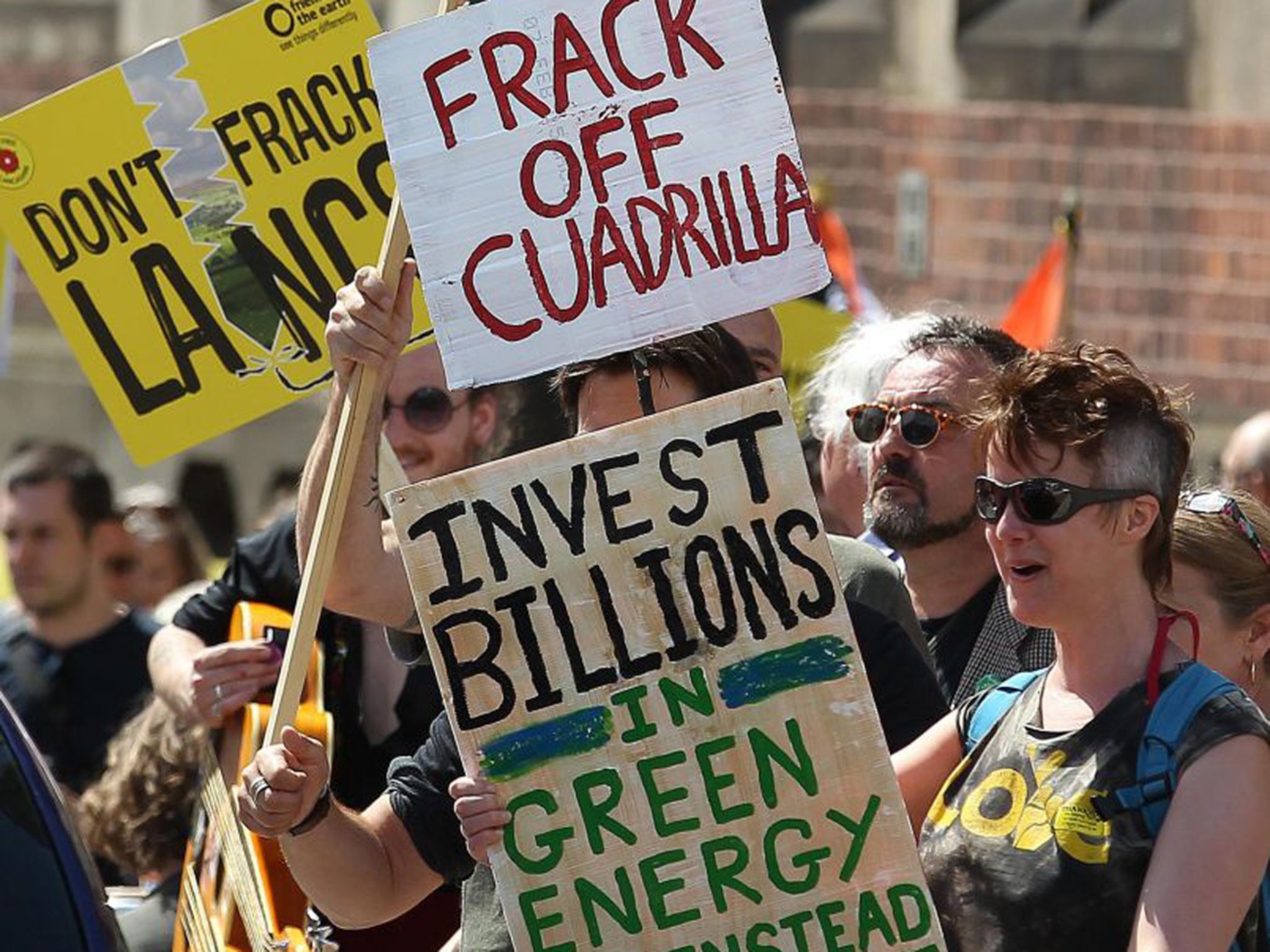Fracking: Government should honour pledge not to award licenses in protected areas, says RSPB
Subject to further environmental consultation, a second batch of around 100 licenses could be issued later this year

Your support helps us to tell the story
From reproductive rights to climate change to Big Tech, The Independent is on the ground when the story is developing. Whether it's investigating the financials of Elon Musk's pro-Trump PAC or producing our latest documentary, 'The A Word', which shines a light on the American women fighting for reproductive rights, we know how important it is to parse out the facts from the messaging.
At such a critical moment in US history, we need reporters on the ground. Your donation allows us to keep sending journalists to speak to both sides of the story.
The Independent is trusted by Americans across the entire political spectrum. And unlike many other quality news outlets, we choose not to lock Americans out of our reporting and analysis with paywalls. We believe quality journalism should be available to everyone, paid for by those who can afford it.
Your support makes all the difference.The possibility that ministers could be preparing to award fracking licenses to energy companies has led to calls for the Government to honour its commitment not to allow it in protected areas.
It is thought that the names of companies who have been awarded the rights in England to explore for shale gas and oil could be announced next week. Roughly 1,000 square miles will likely be covered.
Subject to further environmental consultation, a second batch of around 100 licenses could be issued later this year, covering an estimated 5,000 square miles.
However, Matt Williams of the Royal Society for the Protection of Birds urged the Government to honour its commitment that there would be “no fracking in protected areas” in an interview with The Telegraph.
Although David Cameron and George Osborne have backed shale gas exploration, no wells have been fracked since 2011 when the shale gas company Cuadrilla caused earth tremors near Blackpool.
A surprise decision to reject exploration for shale gas in Lancashire last month was also expected to delay plans further.
Lancashire County Council rejected planning applications from Cuadrilla to drill eight wells at two sites on the Fylde coastal plain, on the grounds that it would have an unacceptable visual impact and create too much noise.
Cuadrilla appealed but that process, regardless of the outcome, is likely to take over a year.
It’s thought the most sought after licenses will include the “Bowland shale” region which includes parts of Lancashire, Cheshire, Yorkshire and Lincolnshire. Estimates suggest that there could be 1,300 trillion cubic feet of gas trapped beneath it.
If 10 per cent of this could be extracted, it could meet Britain’s annual gas demand for more than 40 years.
To win licences, companies must promise to invest in exploration, which at the bare minimum will include seismic surveys.
At least one firm has even applied for rights to explore in central London, although companies have also applied to explore in parts of the South East.
The first licences are likely to be less controversial than those that are subject to further consultation, which include sites protected under European Union law due to rare species or habitats.
Join our commenting forum
Join thought-provoking conversations, follow other Independent readers and see their replies
Comments